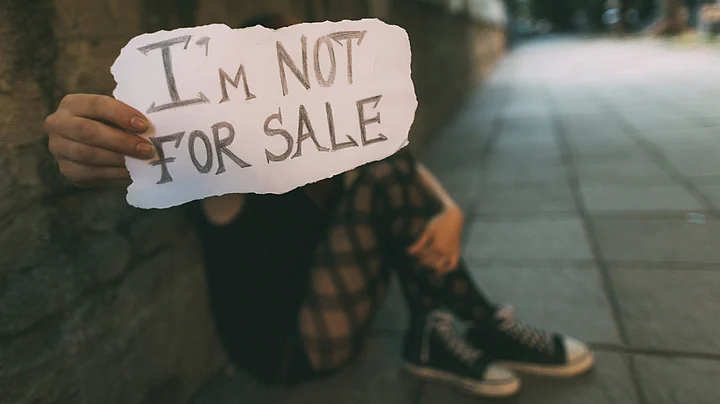Charities and activists have criticised the draft of India’s first anti-human trafficking law, saying the proposed legislation is flawed and does not address all aspects of the fast-growing crime.
The Trafficking of Persons Bill, unveiled in May, seeks to unify India’s existing anti-trafficking laws, prioritise survivors’ needs and provide for special courts to expedite cases.
Consultations on the draft Bill ended last week, and women and child rights campaigners have demanded numerous revisions.
The new law will only create confusion among those working on the ground because it doesn’t list out all trafficking offences, and does not take into account existing legislations. The Bill in its current form is a disaster. It needs to be re-drafted completely.PM Nair, an expert on human trafficking.
South Asia, with India at its centre, is the fastest-growing and the second-largest region for human trafficking after East Asia, according to the UN Office for Drugs and Crime.
While there are no official figures on the number of people trafficked within South Asia, activists say thousands of mostly women and children are trafficked in India, as well as from its poorer neighbours Nepal and Bangladesh.
Many are sold into forced marriage or bonded labour to work in fields, factories, brick kilns and as domestic servants, or are brutally confined in brothels.
According to the National Crime Records Bureau, there were 5,466 human trafficking cases registered in India in 2014, an increase of 90 percent over the past five years. Activists say this is a gross underestimate.
The Bill does not define terms including “trafficking” and “sexual exploitation”, and does not go far enough to ensure prevention of the crime or the rehabilitation of survivors, the National Coalition to Protect our Children (NCPOC) said in a letter to Maneka Gandhi, the minister for women and child development.
“The Bill in its present form does not create a deterrence for the crime of trafficking,” it said in the letter.
The draft also does not include bonded labour as a form of trafficking, and ignores the important role of the anti-human trafficking units set up nationwide from 2006 to fight the crime, human rights group International Justice Mission(IJM) said in its recommendations.
“There must be coordination with existing laws such as the Immoral Traffic Prevention Act, the Juvenile Justice Act and the Protection of Children from Sexual Offences Act to make sure the new law is effective,” IJM said.
The deadline for feedback on the Bill was 30 June, although some campaigners have called for an extension. It will now go to government ministries for their recommendations.
A final Bill could be brought before the parliament by the end of the year, Maneka has said.
(This article has been published in an arrangement with Reuters.)
